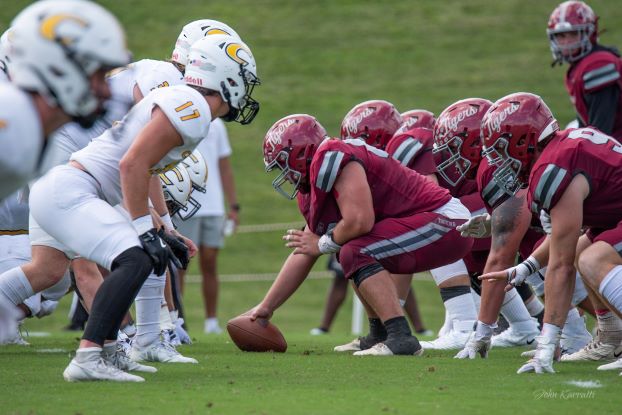How do you enforce cell phone policy? School board weighs steps
Published 4:11 am Tuesday, January 21, 2025
|
Getting your Trinity Audio player ready...
|
What does Prince Edward need to do to make students respect the school district’s cell phone policy? The topic was up for discussion at the school board’s Wednesday, Jan. 15 meeting, with some members arguing the punishments aren’t strong enough.
“I don’t think that we have done enough to help students understand that they need to respect this,” School Board member Elzora Stiff told the rest of the group. “If our intent is to make the environment safer, I don’t think we are saying enough here. What’s going to encourage them to respect the policy?”
Under the current policy, cell phones are already banned in the classroom in Prince Edward schools. Students can use phones in the school cafeteria during lunch. But once you enter class, they have to be put away and silenced. If a student violates that, the first time the school administrators take the phone and the student doesn’t get it back until the end of the day. The second time, school staff has to call home and the phone is held until the parent can come pick it up. The third time, the phone remains in the main office of the school until the end of the week.
Trending
Stiff asked what makes those punishments enough to get a student’s attention.
“I read this policy twice,” Stiff said. “I don’t see the kind of deterrents in this policy that would make a student respect it.”
Cell phone policy a problem of consistency
The problem, School Board Vice Chair Susan Kimbrough said, is that every teacher doesn’t enforce the rules.
“We have some teachers that don’t allow cell phones in their classrooms. The end. They have a method of making them put them up,” Kimbrough said. “And then we have some teachers who are the cool teachers and don’t care. And that’s an issue. If it’s not being enforced by our teachers across the board, then it gets out of hand. And then you’ve got the issue that they’re not supposed to be used in the halls, but who’s going to police that and how is that going to be policed?”
The district’s cell phone policy was brought up as a report from the school board’s policy committee. The group felt there wasn’t a need to follow the rules set up by Gov. Glenn Youngkin’s executive order, which called for a ‘bell to bell’ ban on cell phones in Virginia schools. The Prince Edward School Board’s policy committee, after consulting with the district’s attorney, decided that since this was an executive order and not a law, the recommendations didn’t have to be followed. Committee members also felt the current cell phone policy in Prince Edward is tough enough, but it just needs to be enforced across the board, in all schools and in all classrooms.
“There may come a time that the state legislature actually passes a law that requires us to ban them bell to bell, no more cell phones in the schools at all, but until that point, it is our feeling that our current cell phone policy is certainly strict if it is adherred to as it is written,” Kimbrough said.
Trending
Stiff said she just doesn’t see how the current policy will be respected by students, without changes.
“I think we have not gotten much further than where we were,” Stiff said. “Some jurisdictions have taken a harder line approach. I’m not saying that everything needs to be punitive. But at the same time, students need to have a message that the use of cell phones outside of the rules is unacceptable and harsher penalties may be taken.”
How do you enforce the rules?
So if the argument is that the current policy isn’t being enforced, how do you fix that? The school board members asked interim superintendent Dr. Joseph Cox to meet with principals and teachers, to talk about enforcing the cell phone policy consistently.
“We’ve asked him to get with the principals, but mostly get with the teachers, because quite frankly, they are the ones that have to enforce this across the board,” Kimbrough said. She also asked Cox to “see if the teachers can come up with solutions how (to enforce), because it’s our feeling that if it is a teacher-led initiative on how to enforce the current policy the way it is, then it will be more likely to succeed.”
Cox said he would be glad to meet with principals and teachers, to have a conversation and bring what they say back to the school board. Other school board members argued, however, that too much is being put on teachers that has nothing to do with education.
“Perhaps we should be looking at this as a collaborative effort instead of a teacher-led effort,” School Board member Doug Farley said. “The administration should be just as involved as teachers. When it comes in the front door, just like a gun or drugs or anything else, that’s when (the cell phone ban) should start. It shouldn’t start in the classroom. The teacher is there primarily to reach, not to enforce a cell phone policy, not to enforce a drug policy or any other policy.”
Maybe if the district stops asking teachers to take on these additional roles, Farley said, they would stay in Prince Edward County and stop leaving.






